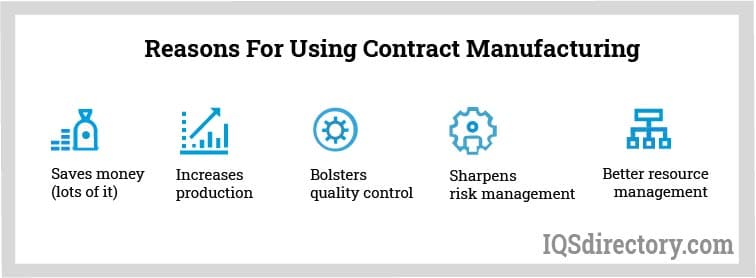Manufacturing Success: Leveraging Agreements for Optimal Efficiency
In the current fast-paced commercial landscape, firms are continuously looking for ways to improve their productivity and simplify operations. One effective approach that has gained traction is contract manufacturing. By working with third-party manufacturers, businesses can also save time and resources but also tap into expert expertise that can foster efficiency and creativity.
Outsourced manufacturing allows organizations to prioritize their main competencies while outsourcing production to trusted partners. This method not only lowers overhead costs but also enables faster turnaround times and scalability. As companies strive to remain competitive in an dynamic market, leveraging contract manufacturing can be a transformative approach for achieving maximum efficiency and profitability.
Grasping Contract Manufacturing
Contract manufacturing is a strategic collaboration in which a company sends out its creation to a specialized manufacturer. This approach allows businesses to leverage the skills, technology, and assets of experienced manufacturers. By centering on their primary skills, businesses can spark creative solutions and simplify their operations while reducing expenses associated with internal production.
One of the main pros of outsourced production lies in adaptability. Businesses can easily change their manufacturing capacity in reaction to market demand without the cost of maintaining excess capacity. This adaptability enables businesses to adapt swiftly to shifts in consumer preferences and market conditions, making it an desirable option for both well-known brands and new companies looking to expand their product portfolio.
Quality control is another critical aspect of contract manufacturing. Creating clear agreements with manufacturers ensures that production standards are met consistently. By collaborating with collaborators that emphasize quality, companies can improve their product selections and establish a strong reputation in the business world. This commitment on quality, combined with expense management, sets companies for long-term growth in an increasingly competitive landscape.
Benefits of Strategic Contracts

Strategic contracts in contract manufacturing serve as a valuable tool for businesses looking to enhance their operations. By setting clear terms and expectations, organizations can reduce risks associated with production delays, quality issues, and cost overruns. When manufacturers and clients work together under clear agreements, they can focus more on their core competencies while streamlining processes to improve overall efficiency. contract manufacturing in malaysia on collaboration paves the way for innovative solutions that benefit both parties.
Another significant advantage of collaborative agreements is the ability to maintain flexibility in a quickly evolving market. With client needs often varying, having a contract that enables adjustments in production volume or delivery timelines can provide a competitive edge. This flexibility ensures that manufacturers can respond quickly to market trends without sacrificing quality or raising costs excessively. Businesses can harness the potential of contract manufacturing to expand services in response to dynamic market demands, thereby maximizing productivity.
Finally, strategic contracts often lead to enhanced relationships between producers and customers. By committing to mutual goals and collective achievements, both parties can foster a sense of collaboration. This collaborative environment encourages open communication and problem-solving, leading to ongoing enhancements and creativity. Ultimately, stronger relationships within manufacturing partnerships can translate to higher quality products, shorter delivery times, and greater client satisfaction, driving sustained success for all involved.
Enhancing Efficiency through Collaboration
Partnership is fundamental to successful contract manufacturing. Through building strong alliances with manufacturers, companies can streamline their manufacturing processes and cut lead times. Transparent communication fosters a better understanding of each party’s strengths and constraints, allowing for quick adjustments and informed decision-making. This teamwork approach not only enhances workflow but also helps to spot and eliminate potential obstacles in the supply chain.
Moreover, collaborative alliances can lead to shared innovations and best practices. When companies work closely with their manufacturers, they gain knowledge into the most recent technologies and methods that can improve production productivity. By exploring these developments together, both parties can develop customized solutions that meet specific needs, resulting in superior quality products and lower costs. This synergy ultimately drives enhanced competitiveness in the market.
Finally, fostering a environment of collaboration promotes constant improvement. Consistent feedback loops between manufacturers and clients can lead to proactive problem-solving and adaptations that boost overall productivity. Through leveraging the strengths of each partner, businesses can not only reach their current production goals but also set the stage for long-term growth and success in an constantly changing industry context.